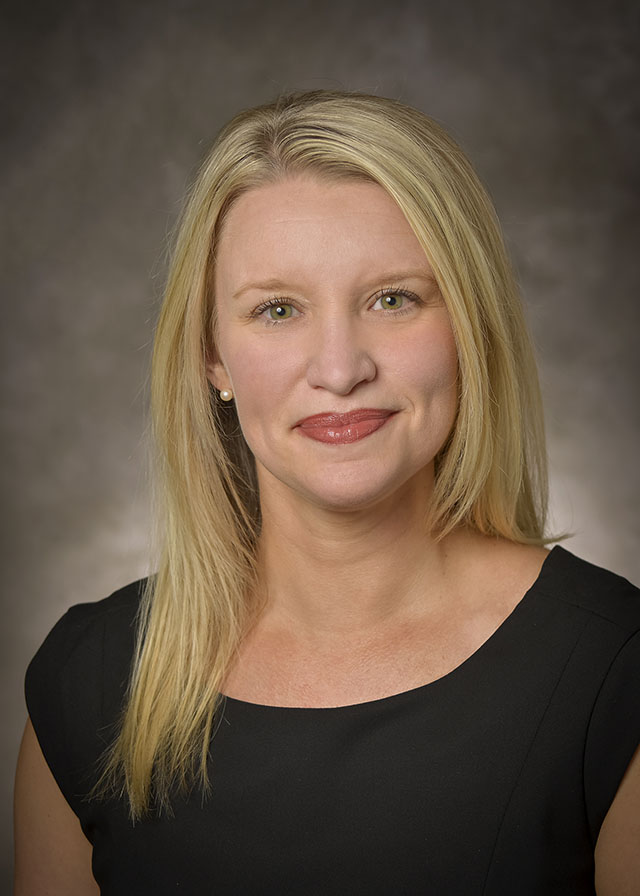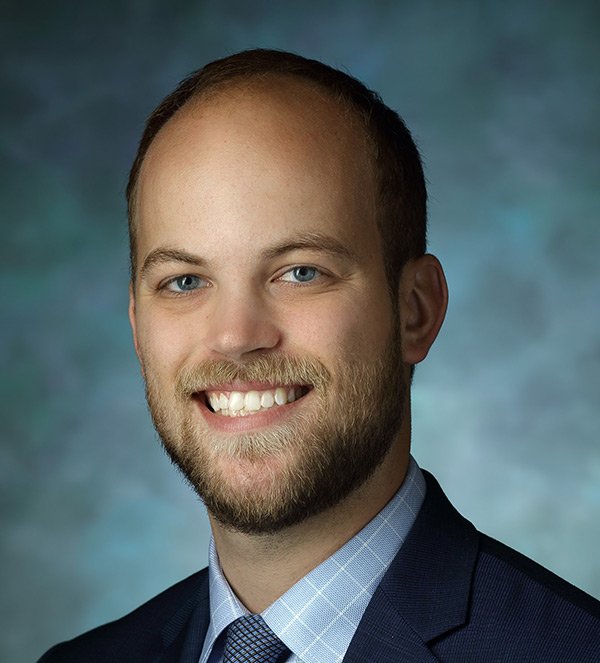PGY2 Solid Organ Transplant
Program Type: ASHP-Accredited PGY2 Residency
ASHP Match Number: 707676
PGY2 Program Purpose
PGY2 pharmacy residency programs build on Doctor of Pharmacy (Pharm.D.) education and PGY1 pharmacy residency programs to contribute to the development of clinical pharmacists in specialized areas of practice. PGY2 residencies provide residents with opportunities to function independently as practitioners by conceptualizing and integrating accumulated experience and knowledge and incorporating both into the provision of patient care or other advanced practice settings. Residents who successfully complete an accredited PGY2 pharmacy residency are prepared for advanced patient care, academic, or other specialized positions, along with board certification, if available.
Program Overview
The PGY2 Solid Organ Transplant (SOT) residency program at The Johns Hopkins Hospital provides experiences in kidney, pancreas, liver, heart and lung transplantation. Residents will be exposed to transplant patients and living donors throughout all phases of the transplant process including pre-transplant multidisciplinary selection committees, post-donation care during the index hospitalization and post-transplant care immediately after surgery, in the ambulatory care clinics and during hospital readmissions. The resident's staffing requirement, departmental on-call responsibility, research project/medication use evaluation and discharge medication education experience will be ongoing throughout the year.
Please refer to the “Program Overview” section of the Department of Pharmacy, Johns Hopkins Medicine website.
Program Goals
- To train confident, independent transplant pharmacists that will serve as transplant pharmacotherapy experts and leaders in the pharmacy profession
- Develop expertise in identifying medication related issues in SOT patients and effectively communicating evidence-based recommendations to address these concerns
- Utilize the American Society of Health-System Pharmacists (ASHP) Competency Areas, Goals and Objectives (CAGOs) for PGY2 SOT Residencies and create an individualized training program using the resident’s customized plan
Successful completion of the residency requires a resident to:
- Complete all assigned orientation, certification and competency tasks
- Complete all core month long and longitudinal learning experiences as well as three elective month-long learning experiences
- Obtain licensure as a pharmacist in the state of Maryland as described in the JHH Pharmacy Residency Manual
- Present an ACPE-accredited Pharmacotherapy Rounds lecture
- Complete a residency project
- Obtain an “achieved for residency” designation on at least 80% of the residency goals
- Must obtain an "achieved for residency" designation in 100% of the required objectives in Goal R1.1
- Complete deliverables required by the program’s Competency Areas, Goals and Objectives (CAGOs) and 100% of the Appendix
Orientation
The Pharmacy Residency Orientation experience provides a comprehensive and coordinated training program designed to provide incoming residents with an understanding of policies, procedures, and expectations for the pharmacy residency experience. During orientation, residents will participate in hospital, departmental, divisional and PGY2 specific orientation.
Hospital and pharmacy department orientation is required for all new pharmacist hires at Johns Hopkins Hospital. The resident is expected to interact with members of the pharmacy department throughout orientation and to attend assigned orientation and training sessions.
Prior to the start of the residency program, residents will be given a full, detailed orientation itinerary.
Core Learning Experiences (each rotation is one month in duration)
- Orientation
- Kidney/Pancreas Transplant Surgery
- Liver Transplant Surgery
- Heart Transplant and Heart Failure
- Lung Transplant
- Transplant Nephrology
- Transplant and Oncology Infectious Diseases
- Critical Care - Surgery
- Pediatric Transplant (with one of the two services listed below)
- Pediatric Nephrology and Renal Transplant
- Pediatric Cardiac Intensive Care and Heart Transplant
Core Longitudinal Learning Experiences (durations vary, see below)
- Ambulatory Care Transplant Clinics (each experience will be 3 months in duration)
- Liver Transplant Surgery Clinic
- Kidney/Pancreas Transplant Surgery Clinic
- Pediatric Transplant Clinic – Nephrology & Renal Transplant
- Transplant Discharge Medication Education (12 months)
- Transplant Pharmacy Professional Development (12 months)
- Transplant Research Project or Medication Use Evaluation (12 months)
- Staffing – Adult Medicine, Emergency & Surgery Division (12 months)
- Resident On-Call Program (12 month)
- Drug Class Review (3 months)
Elective Learning Experiences
- Advanced Kidney/Pancreas Transplant Surgery
- Advanced Liver Transplant Surgery
- Advanced Heart Transplant and Heart Failure
- Advanced Lung Transplant
- Advanced Transplant Nephrology
- Advanced Transplant Ambulatory Care
- Other elective learning experiences may be developed based on resident interest and preceptor availability
Education Components
- Pharmacotherapy Rounds
- All residents will provide a 30-minute presentation that is ACPE accredited.
- Residency Manual: Please see the “Pharmacotherapy Rounds” section of the Residency Manual for additional information.
- Please refer to the “Learning Opportunities” section of the Department of Pharmacy, Johns Hopkins Medicine website.
- Journal Clubs and/or Topic Discussions
- The PGY2 SOT resident will participate in routine journal clubs and topic discussions with the transplant pharmacist preceptor group focusing on the SOT Appendix from the ASHP PGY2 SOT Pharmacy Residencies CAGOs.
- Teaching Requirements
- Each Hopkins resident is required to provide educational sessions.
- The PGY2 SOT resident will provide a 60-minute continuing education (CE) presentation for the pharmacy department as part of the monthly CE offerings. Additionally, the PGY2 SOT resident will have opportunities to teach patients, caregivers, pharmacy learners, other pharmacists and other healthcare professionals.
- Residency Manual: See the "Teaching Requirements" section of the Residency Manual for additional information.
- Please refer to the “Learning Opportunities” section of the Department of Pharmacy, Johns Hopkins Medicine website.
Program and Application Requirements
- Doctor of Pharmacy degree from an ACPE accredited school of pharmacy
- Successful completion of an ASHP-accredited PGY1 pharmacy residency program
- Eligible for pharmacist licensure in Maryland
- Application materials must be submitted through PhORCAS by January 2, 2024
- Completed application
- Letter of intent
- Curriculum vitae
- Official university/college transcripts
- PhORCAS standard recommendation form submitted by three references
- Interview for qualified applicants in January/February
Licensure and Certification Requirements
All residents are expected to obtain a Maryland State Pharmacy License by August 1st. The resident will arrive at the program already ACLS certified or will complete certification during the residency year (if applicable).
Residency Manual: Please see the “Licensure Expense Reimbursement and Failure to Obtain Licensure” section of the Residency Program Manual for additional information.
Attendance at Professional Meetings
The department will support the resident (expense and leave time) to attend ASHP Midyear Clinical Meeting and the American Transplant Congress (ATC). Any additional travel that is to be supported by the department is evaluated on a case-by-case basis.
Residency Manual: Please see the "Travel and Pharmacy Association Involvement" section of the Residency Program Manual for additional information.
Please refer to the “Meetings and Conferences” section of the Department of Pharmacy, Johns Hopkins Medicine website.
Research Project or MUE
The PGY2 SOT resident must complete a self-directed research project or medication use evaluation (MUE). The scope, magnitude, and type of project will vary according to individual interests but must be completed in a manner suitable for presentation and publication.
Residency Manual: Please see the “Residency MUE Project” section of the Residency Program Manual for additional information.
Please refer to the "Projects" section of the Department of Pharmacy, Johns Hopkins Medicine website.
Committee Participation
The PGY2 SOT resident will serve as the secretary of the Inpatient and Outpatient Transplant Pharmacy Collaboration Committee.
Residency Manual: Please see the "Summary of Committee Participation and Involvement" section of the Residency Program Manual for additional information.
Staffing Requirement
- PGY2 Residents remaining in the same practice area as their PGY1 Residency and demonstrating a proficient level of performance (or greater) in June, are exempt from Satellite Orientation in July. The practice component will start the first weekend in July and residents will practice every third weekend.
- PGY2 residents changing staffing areas will complete satellite orientation in July, and continue staffing every third weekend. Resident will be evaluated at 90 days. If the resident believes a whole month orientation is not necessary, the resident may ask their Division Director for an earlier evaluation.
- PGY2 residents new to Johns Hopkins Hospital will complete an orientation in July for the new satellite area. Residents will practice every other weekend beginning the first or second weekend in August. The resident’s practice performance will be evaluated at the conclusion of the hospital 90-day probationary period using the Pharmacist’s Performance Review and the orientation checklist. If the resident demonstrates a proficient level of performance (or greater) the resident’s practice component will be changed to every third weekend.
- If a PGY2 resident is not proficient at the 90 day evaluation point, the resident will continue staffing every other weekend. The resident will receive an evaluation every 6 weeks. Once the resident demonstrates a proficient performance on evaluation, the staffing component will be changed to every third weekend.
- For PGY2 residents that are proficient at 90 days, the specific date for beginning to work every third weekend will be updated and included in the residency manual every year.
Residency Manual: The PGY2 SOT resident will follow the staffing requirements as outlined in the Residency Program Manual.
Please refer to the "Staffing Requirements" section of the Department of Pharmacy, Johns Hopkins Medicine
Resident On-Call Program
The PGY2 SOT resident will participate in clinical on-call services. On-call duties include adult and pediatric code response, trauma and stroke calls, administrative assistance, and other duties. On-call hours are from 4 PM to 10 PM on weekdays and 8 AM to 8 PM on weekends and holidays. The frequency of on-call coverage depends upon the number of residents in the entire program and averages about 15 shifts per year.
Residency Manual: See the “On Call” section of the Residency Manual for additional information.
Please refer to the "On Call Program" section of the Department of Pharmacy, Johns Hopkins Medicine website.
Paid Time Off (PTO)
Residency Manual: The PGY2 SOT resident will follow the requirements for “Paid Time Off (PTO)” as outlined in the Residency Program Manual.
Please refer to the “Benefits” section of the Department of Pharmacy, Johns Hopkins Medicine website.
Residency Program Director

Lindsey P. Toman, PharmD, BCPS, BCTXP
Clinical Pharmacy Specialist, Ambulatory Care Solid Organ Transplant
The John Hopkins Hospital
Department of Pharmacy
600 North Wolfe Street, Carnegie 180
Baltimore, MD 21287-6180
Email: [email protected]
Residency Program Coordinator

Brian Lindner, PharmD, BCPS
Clinical Pharmacy Specialist, Liver Transplant
The John Hopkins Hospital
Department of Pharmacy
600 North Wolfe Street, Carnegie 180
Baltimore, MD 21287-6180
Email: [email protected]
Core Residency Preceptors
Brandon Keith, PharmD, DPLA, BCACP
Clinical Coordinator II, Solid Organ Transplant
Brandon Trollinger, PharmD, BCPS, BCTXP
Clinical Pharmacy Specialist, Kidney/Pancreas Transplant
Brian Lindner, PharmD, BCPS
Clinical Pharmacy Specialist, Liver Transplant
Dave Procaccini, PharmD, MPH, BCPS, BCCCP, BCPPS, CACP, CPHQ
Clinical Pharmacy Specialist, Pediatric Cardiac Intensive Care & Heart Transplant
Elizabeth Goswami, PharmD, BCPS, BCPPS
Clinical Pharmacy Specialist, Pediatric Nephrology & Renal Transplant
Kate Dzintars, PharmD, BCPS
Clinical Pharmacy Specialist, Infectious Diseases
Laura Lees, PharmD, BCPS
Clinical Pharmacy Specialist, Kidney/Pancreas and VCA Transplant
Ryan Whisler, PharmD, BCACP
Clinical Coordinator III, Solid Organ Transplant
Sara Strout, PharmD, BCPS, BCTXP
Clinical Pharmacy Specialist, Cardiothoracic Transplant
Traci Grucz, PharmD, BCCCP
Clinical Pharmacy Specialist, Surgical Intensive Care Unit
